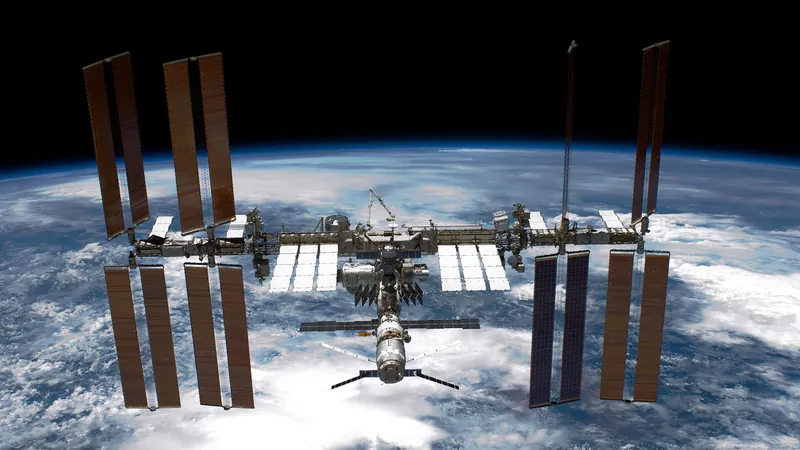
Unveiling the Marvels of the International Space Station
2025-01-07
Author: Jia
What is the ISS?
The International Space Station is a remarkable artificial satellite that orbits Earth at an average altitude of approximately 420 kilometers (about 261 miles). Jointly operated by space agencies from the United States, Russia, Europe, Japan, and Canada, the ISS serves as a microgravity research laboratory where scientists conduct innovative experiments across various fields such as biology, physics, and astronomy.
A Hub for Scientific Discovery
Imagine conducting experiments that can’t be performed on Earth! The ISS allows researchers to observe phenomena that occur in microgravity, which can lead to breakthroughs in our understanding of fundamental scientific processes. For example, studies on muscle atrophy in space can provide insights that are highly relevant to aging populations on Earth. Additionally, fractions of the scientists' work involve growing plants and studying their behavior in space, which has long-term implications for future interplanetary exploration and the possibility of growing food on other planets.
Life on the ISS
Living on the ISS is nothing short of extraordinary. Astronauts experience 16 sunrises and sunsets each day due to the station's rapid orbit around the Earth. They engage in research, exercise, and daily chores in microgravity, which presents unique challenges, like keeping food and drink from floating away! Astronauts typically spend about six months aboard the space station, closely monitored in their health and physical well-being.
The Importance of Collaboration
The ISS symbolizes international cooperation in space exploration. Collaborative projects aboard the ISS foster partnerships that transcend terrestrial borders, promoting peace and mutual understanding. Scientists and engineers from various countries work side by side, creating an unprecedented global community dedicated to scientific advancement.
The Future of the ISS
The ISS has been continuously occupied since November 2000 and is expected to remain operational until at least 2028. However, discussions are already underway about its future. Experts suggest that as private companies like SpaceX and Blue Origin gear up for their own missions involving space stations, the role of the ISS may evolve. Future missions could lay the groundwork for human settlement on the Moon or even Mars.
In summary, the International Space Station is not just a hub for scientific research; it's a beacon of hope for future generations, reminding us that space exploration is a global endeavor. So, the next time you look up at the night sky, consider the astonishing work happening thousands of miles above us—where mankind is pushing the boundaries of what we know about our universe!


 Brasil (PT)
Brasil (PT)
 Canada (EN)
Canada (EN)
 Chile (ES)
Chile (ES)
 Česko (CS)
Česko (CS)
 대한민국 (KO)
대한민국 (KO)
 España (ES)
España (ES)
 France (FR)
France (FR)
 Hong Kong (EN)
Hong Kong (EN)
 Italia (IT)
Italia (IT)
 日本 (JA)
日本 (JA)
 Magyarország (HU)
Magyarország (HU)
 Norge (NO)
Norge (NO)
 Polska (PL)
Polska (PL)
 Schweiz (DE)
Schweiz (DE)
 Singapore (EN)
Singapore (EN)
 Sverige (SV)
Sverige (SV)
 Suomi (FI)
Suomi (FI)
 Türkiye (TR)
Türkiye (TR)
 الإمارات العربية المتحدة (AR)
الإمارات العربية المتحدة (AR)